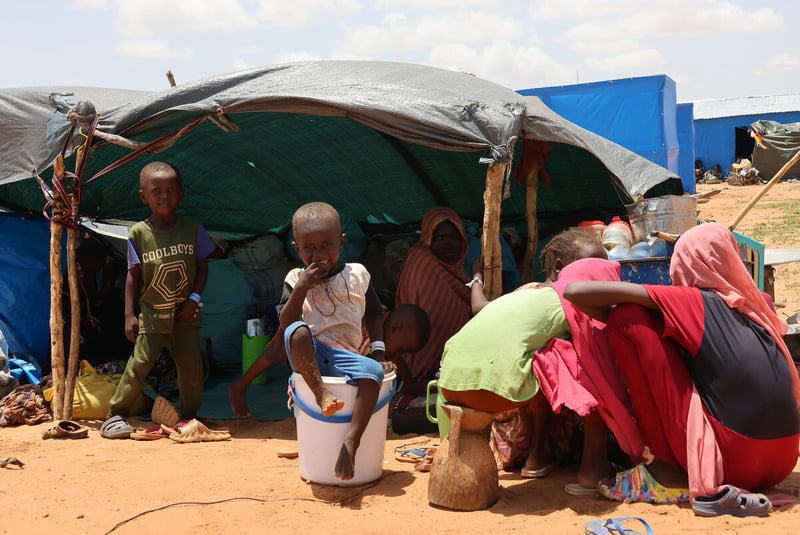One year after conflict erupted, 24 million children in Sudan face hunger, violence and lack of access to education
Media Contact :
April 11, 2024
Senior Public Relations Manager
[email protected]
m 404-735-0871
Media Contact :
April 11, 2024
Senior Public Relations Manager
[email protected]
m 404-735-0871

PORT SUDAN (April 11, 2024) – As the conflict in Sudan approaches its 1-year mark on April 15, global Christian humanitarian organization World Vision warns that tens of millions of children continue to be gravely impacted by the violence.
More than 8 million people have been displaced by the conflict, and 24.8 million—approximately half of Sudan’s population—are in need of humanitarian assistance due to extreme food shortages and a lack of access to healthcare. In addition to the widespread risk of malnutrition, children also face considerable threats to their safety, including sexual violence, ethnic targeting, abduction, recruitment into armed groups and subjection to terror by armed militia.
According to the U.N. Committee on the Rights of the Child, some 24 million children in Sudan are “at risk of generational catastrophe.”
John Makoni, World Vision’s national director in Sudan, warned, “Sudan is currently quite possibly the worst place in the world for a child to live, due to the huge numbers of boys and girls affected by the conflict, but also because of the full range of physical and emotional challenges they face. Children are literally being starved, abused and traumatized by what they are experiencing and witnessing. Many have fled the violence but have been unable to find any real safety.”
Makoni said World Vision was attempting to alleviate the ordeal faced by children by partnering with UNICEF to run Child-Friendly Spaces—places where boys and girls can feel safe and cared for, and which can offer some sense of normalcy amid the chaos.
One such space, in Abu Ramad in the Blue Nile region, has been provided by World Vision with volleyballs, basketballs, board games, art equipment and skipping ropes. More than 100 girls and boys attend daily.
Mariam, 14, says she attends three times a week to play with friends. She dreams of being an engineer and hopes to help construct schools and a hospital in her community.
Makoni said displaced women and girls face significant risks from sexual violence while living in temporary shelters, at border crossings, or while on the move. World Vision works to support those who have experienced violence and has provided psychosocial services to thousands of women and girls.
World Vision is also providing livelihood skills training in Blue Nile to help women find new ways of supporting their families. Soap making, tailoring, and leather crafting are some of the skills they learn. Aisha[1], a mother of four, said, “Since joining the center, I’ve been able to create clothing for my children, saving money and contributing to our household income.”
World Vision says response on a massive scale is needed to help the people of Sudan endure a crisis that does not make headlines in most of the world, including:
World Vision is one of the largest humanitarian aid organizations active in Sudan, having worked in the country for 25 years. Over the past year, World Vision has reached more than 1.3 million people, most of them women and children, with emergency assistance including programs focused on food security, child protection, health and nutrition, and water, sanitation and hygiene.
World Vision is also responding to the needs of people fleeing Sudan to the neighboring countries of Chad, the Central African Republic, Ethiopia and South Sudan.
[1] Name changed to protect identity
About World Vision:
World Vision is a Christian humanitarian organization dedicated to working with children, families and their communities worldwide to reach their full potential by tackling the causes of poverty and injustice. We serve all people, regardless of religion, race, ethnicity or gender. For more information, visit worldvision.org or follow on X, formerly known as Twitter, @WorldVisionUSA.